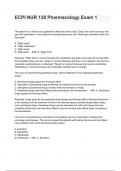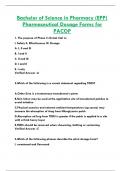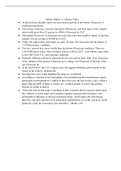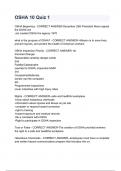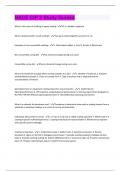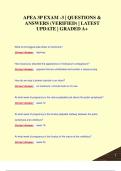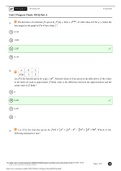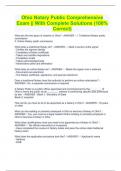Exam (elaborations)
ECPI NUR 138 Pharmacology Exam 1 Questions And Answers All Verified
- Course
- NUR 138
- Institution
- Ecpi University, Northern Virginia
ECPI NUR 138 Pharmacology Exam 1 Questions And Answers All Verified The patient is to receive oral guaifenesin (Mucinex) twice a day. Today, the nurse was busy and gave the medication 2 hours after the scheduled dose was due. What type of problem does this represent? A. "Right route" B. "R...
[Show more]
